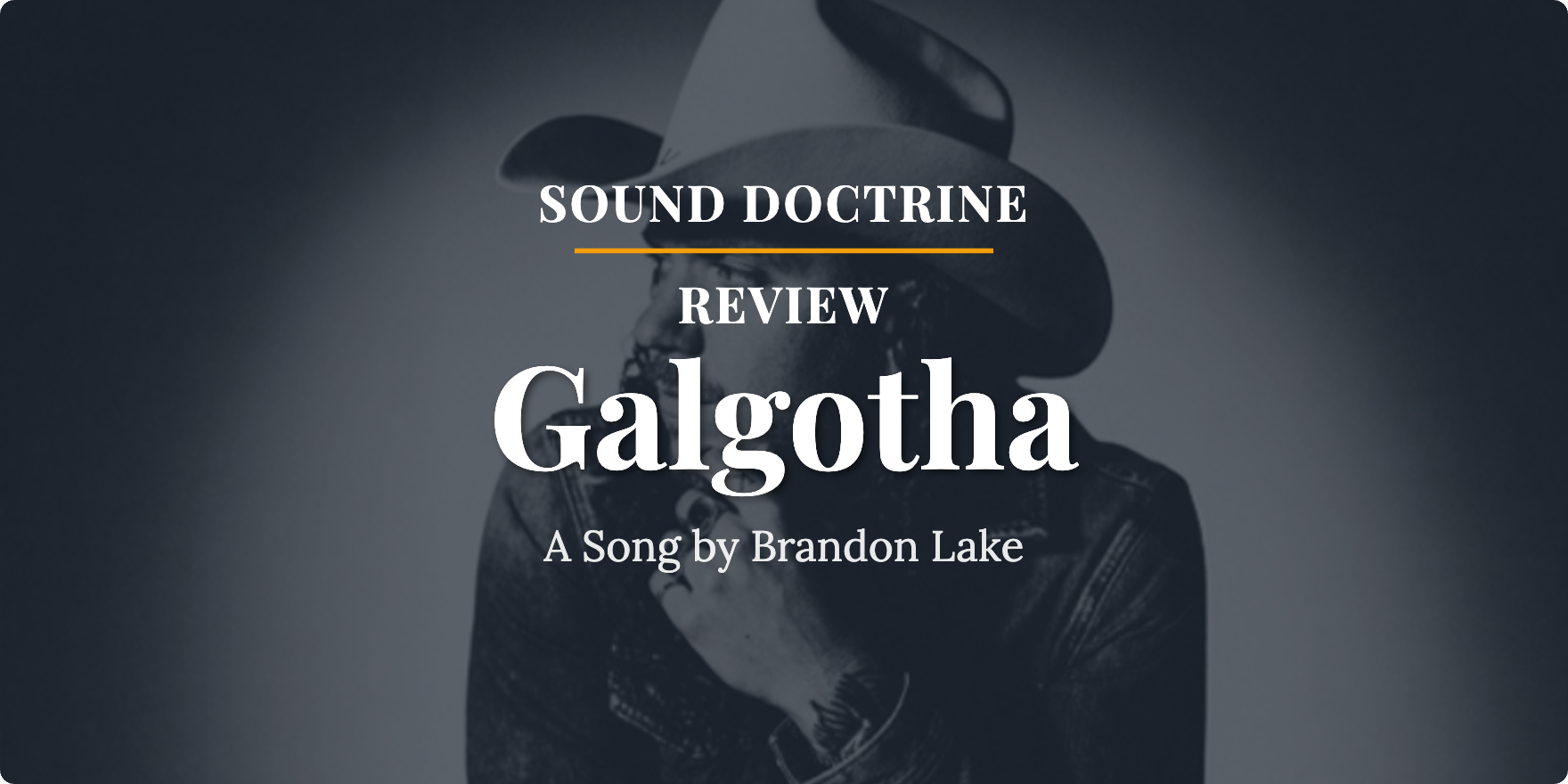
A Review of "Galgotha"
A Doctrinal Review of “Golgotha” by Brandon Lake
Brandon Lake’s “Golgotha” stands out among modern worship songs for its clear focus on the central truths of the Christian faith: the death, resurrection, and return of Jesus Christ. In a time when many contemporary songs lean toward vague emotionalism or self-centered expressions, “Golgotha” is refreshingly Christ-exalting, gospel-rich, and doctrinally sound.
Theological Analysis of the Lyrics
The song opens by placing the listener at the scene of Christ’s crucifixion — “Upon a hill they called Golgotha / There grew a rose among the weeds” — a poetic reference that evokes (Isaiah 53:2), which describes the Messiah as a tender plant growing from dry ground. Here, Christ is presented as perfect and pure, surrounded by sinful humanity. The line “Our God, the King, among the thieves” reminds us of His humiliation, crucified between criminals as foretold in prophecy (Isaiah 53:12; Luke 23:32-33).
The chorus shifts from narrative to worshipful response: “Oh hallelujah with hands lifted high / What else would I do but give You my heart?” This reflects the biblical pattern of responding to God’s grace with wholehearted devotion (Romans 12:1). The repeated offering of “my hallelujah” reinforces that true worship is not just song but surrender of the heart.
A strong point of the song is its handling of the resurrection: “Who puts a God inside a grave? / You can’t put God inside a grave.” This boldly proclaims Christ’s victory over death, echoing (Acts 2:24) — “God raised him up… because it was not possible for him to be held by it.” This is an essential gospel truth that cannot be overstated, and the song rightly centers on this triumph.
Even more notable is the song’s anticipation of Christ’s return: “Someday in skies above Golgotha / On clouds like stallions He’ll descend.” Few modern worship songs reference the Second Coming, yet this is a central Christian hope (1 Thessalonians 4:16; Revelation 19:11-16). The reminder that “the King is coming back again” directs the believer’s gaze to the future consummation of all things — a rare and welcome emphasis.
Doctrinal Soundness and Strengths
Another strength is that the song’s lyrics avoid problematic doctrinal pitfalls common in contemporary Christian music. There is no hint of prosperity theology, no promise of earthly ease, and no reduction of Christ’s work to self-help slogans. Instead, the song moves from the historical reality of the cross, to the resurrection’s power, to the coming glory of Christ’s return — the full gospel arc.
A Note on Artistic Language
If there is any mild critique, it is that the poetic imagery may be challenging for those unfamiliar with biblical language. Phrases like “rose among the weeds” or “clouds like stallions” are creative and rich but might require explanation for younger believers or those without scriptural background. However, this is not a flaw in doctrine — simply artistic style that remains within the bounds of orthodoxy.
Conclusion and Recommendation
In conclusion, “Golgotha” is a theologically sound, beautifully written worship song that exalts Christ’s person and work. It rightly presents Jesus as the crucified, risen, and returning King and calls believers to respond with worship and surrender. In a landscape of worship music that often leans toward emotionalism or self-focus, this song brings the essential truths of the gospel back to the forefront — where they belong.
For churches seeking songs that honor Christ fully and point worshipers to His saving work, “Golgotha” is a commendable choice.